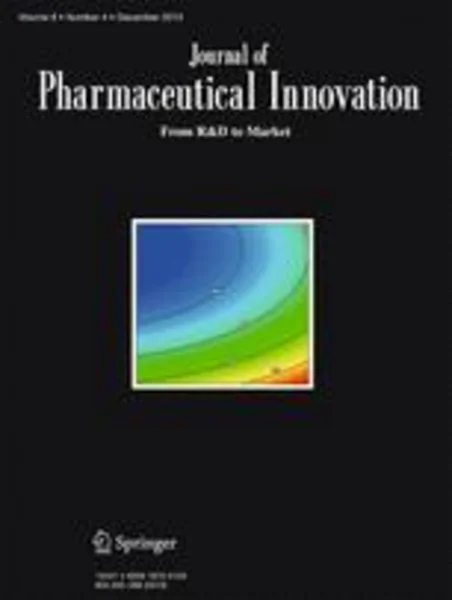-
best practices for drug substance stress and stability studies during early stage development. part iii—how to make science- and risk-based stability testing decisions for drug substance batches produced after manufacturing process changes
جزئیات بیشتر مقاله- تاریخ ارائه: 1392/07/24
- تاریخ انتشار در تی پی بین: 1392/07/24
- تعداد بازدید: 880
- تعداد پرسش و پاسخ ها: 0
- شماره تماس دبیرخانه رویداد: -
during phase 1 and phase 2 drug development (early stage drug development), it is normal to continuously improve a manufacturing process, with changes made to the synthetic pathway, reagents, reaction conditions, crystallization parameters, drying conditions, or manufacturing equipment or scale or site. these manufacturing process changes (“process changes” used thereafter) may or may not affect quality attributes such as impurities, and quality attribute changes may or may not affect drug substance (ds) stability. but a common misconception is that almost all process changes and/or quality attribute changes affect ds stability, and a new (or repeat) stability study is conducted for the ds batch produced after process changes. this misconception is clearly refuted by our many years of ds stability experience. to understand how process changes might affect ds stability, we compiled and analyzed manufacturing processes, quality test results, and stability data for 48 batches from seven drug substances in recent development. of these 48 batches, the seven first ds clinical batches were used as references against which the other respective 41 batches, which were produced after process changes, were compared for changes in manufacturing processes, quality test results, and stability data. this comparison showed that the chemical and physical stability of 36 (of the 41) batches was not affected by process changes, and the chemical or physical stability of the other 5 batches was affected by residual inorganic impurities, significant amounts of water or residual solvents, or significant changes in ds particle size distribution or surface area. these quality attributes that affect stability are called stability-related quality attributes (srqas). a new (or repeat) stability study is warranted only if process changes significantly affect srqas. we have established a procedure to systematically assess changes in manufacturing process and quality attributes (particularly impurity profiles), to identify srqas (risk assessment), and to make science- and risk-based stability testing decisions on whether and how stability testing for new ds batches should be conducted (risk management).
مقالات جدیدترین رویدادها
-
استفاده از تحلیل اهمیت-عملکرد در ارائه الگوی مدیریت خلاقیت سازمانی و ارائه راهکار جهت بهبود
-
بررسی تاثیر ارزش وجوه نقد مازاد بر ساختار سرمایه شرکت های پذیرفته شده در بورس اوراق بهادار تهران
-
بررسی تأثیر سطح افشای ریسک بر قرارداد بدهی شرکت های پذیرفته شده در بورس اوراق بهادار تهران
-
بررسی تأثیر رتبه بندی اعتباری مبتنی بر مدل امتیاز بازار نوظهور بر نقد شوندگی سهام با تأکید بر خصوصی سازی شرکت ها
-
تأثیر آمیخته بازاریابی پوشاک ایرانی بر تصویر ذهنی مشتری پوشاک ایرانی (هاکوپیان)
-
بررسی رفتار خاک های کربناتی سیمانته شده
-
بررسی تاثیر کنترل داخلی و پایداری شرکت ﺑﺮ ﺭﯾﺴک ﺳیﺴﺘﻤﺎﺗیک ﻭ ﺭﯾﺴک ﺧﺎص ﺷﺮکﺖ در شرکت های پذیرفته شده در بورس اوراق بهادار تهران
-
ارزیابی پتانسیل ها و بازار گردشگری شهر ساحلی جویبار و تدوین استراتژی با استفاده از مدل راهبردی swot
-
out-of-plane behaviour of confined masonry walls
-
monoids over which products of indecomposable acts are indecomposable
مقالات جدیدترین ژورنال ها
-
مدیریت و بررسی افسردگی دانش آموزان دختر مقطع متوسطه دوم در دروان کرونا در شهرستان دزفول
-
مدیریت و بررسی خرد سیاسی در اندیشه ی فردوسی در ادب ایران
-
واکاوی و مدیریت توصیفی قلمدان(جاکلیدی)ضریح در موزه آستان قدس رضوی
-
بررسی تاثیر خلاقیت، دانش و انگیزه کارکنان بر پیشنهادات نوآورانه کارکنان ( مورد مطالعه: هتل های 3 و 4 ستاره استان کرمان)
-
بررسی تاثیر کیفیت سیستم های اطلاعاتی بر تصمیم گیری موفق در شرکتهای تولیدی استان اصفهان (مورد مطالعه: مدیران شرکتهای تولیدی استان اصفهان)
-
مبارزه پیامبر (ص) با نفوذ خزنده تفکر رهبانی در اخلاق مسلمانان
-
سلامت معنوی در سالمندان ایرانی
-
رویکردهای نوین مدیریت ارزش کسب شده در مدیریت پروژه
-
تبیین نقش پلیس در تحقق حقوق شهروندی در پرتو آموزه های اسلامی
-
implementation, advantages and management of iso 9001 in the construction industry




سوال خود را در مورد این مقاله مطرح نمایید :